Blogue
Telework and well-being - not always fast friends

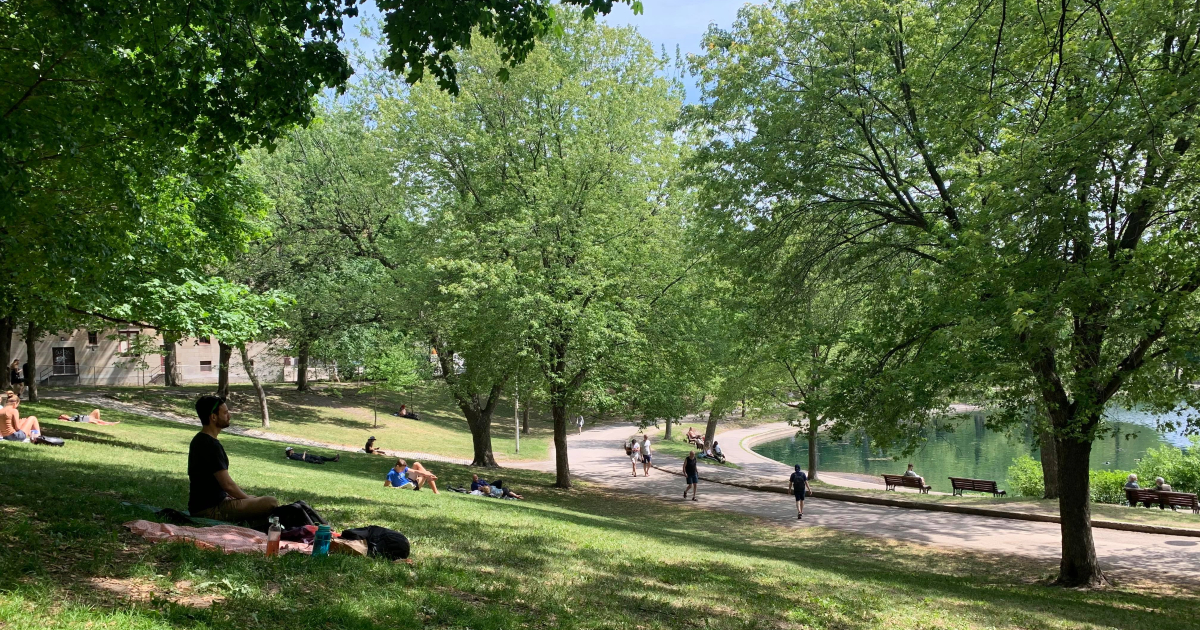
Guaranteeing access to parks via active modes of transport fosters equity between citizens, regardless of age or income level, says Professor Geneviève Boisjoly. (Photo: Catherine Lacroix-Couture).
Teleworking - a source of well-being? Not necessarily, according to the results of two surveys conducted this year by Polytechnique Montréal and McGill University researchers. When it comes to quality of life, social interactions and travel also matter.
The end of the curfew on May 28th once again revealed Montrealers’ love of their green spaces. Whether in Lafontaine, Jarry or Laurier parks, thousands of park aficionados rushed to occupy the last free bits of grass to relax together and mark the end of a long winter.
It’s a phenomenon that's nothing new - and you're right, as evidence here and here.
The ban on indoor gatherings has propelled parks - whether large and small - to the top of the preferred destinations list for many, as a place to meet friends and relatives. Importantly green spaces also represent a counterbalance to the collective overdose of screens, which have crowded out social activities of late.
Pandemic-era warning shots

Professor Geneviève Boisjoly and Professor Owen Waygood (Photo : Caroline Perron)
The latter observation is just one of the trends uncovered by Professors Owen Waygood and Geneviève Boisjoly (Department of Civil, Geological and Mining Engineering; Polytechnique Montréal), when analyzing initial survey data about pandemic-era changes in Canandian’s habits. The survey was conducted in May 2020, during the first wave of the pandemic, and polled 881 individuals.
"Among other things, what we noticed was that survey participants who made frequent trips to parks, nature, or bodies of water also showed a higher feelings of well-being than others," explains Professor Boisjoly.
Above and beyond this observation, the survey - conducted in collaboration with a group from McGill University - enabled researchers to quantify the impact of health measures on individuals' travel habits, social life, and well-being. That’s what researchers call a ‘life satisfaction’ index.
"The first finding was rather easy to identify," Professor Waygood begins. “Overall, most people's satisfaction with life plummeted at the start of the pandemic."
The “life satisfaction” index of those surveyed went from 70.1% pre-pandemic to 40.7% in May 2020.
Nothing surprising, you might say, but wait - our researchers have a little more to say about their data.
“We noticed that the decrease in 'life satisfaction' came with social interactions qualified as 'unsatisfactory' by participants," explains Professor Waygood.
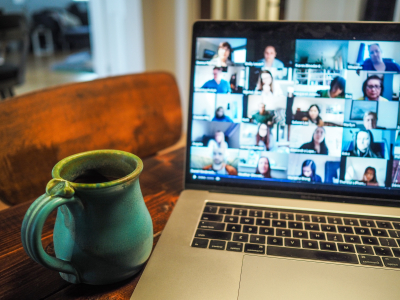
|
While they may have enabled us to keep in touch with the outside world during the pandemic, virtual meetings don't quite engender the same feeling of well-being as face-to-face meetings, according to the results of two surveys. (Photo : Chris Montgomery, Unsplash) |
Forgive this author's simplification; in other words, those who missed their loved ones, friends, and co-workers in May 2020 were also sadder. While this is merely a correlation, there could still be a bona fide connection between the two observations, given the importance of social interactions to human mental health, as has been amply demonstrated in previous studies.
Even our glowing computer screens, so useful for teleworking, could not counter the slide in well-being. Among those who used videoconferencing and other telecommunications tools for their professional and personal activities, the index was at 38.2%.
“When judging rates of well-being in individuals, this suggests that virtual meetings are not a substitute for in-person meetings," notes Professor Waygood.
Mobility and well-being closely linked
| Professor Waygood revealed data from the first survey at a virtual conference of the International Professional Association for Transport & Health (IPATH) in October 2020. (YouTube) |
Everyone can agree on the importance of social interactions, but what about the impact of movement itself on life satisfaction? To find the answer, researchers conducted a new survey in Autumn 2020, during the pandemic's second wave.
The latter survey's results made it possible to identify the types of trips that participants missed the most, results that were unveiled last January at the Transportation Research Board 2021 Annual Meeting.
What was at the top of everyone's list, you ask? Outings to meet friends or to eat at restaurants. Once again, nothing too surprising in that, but the rest of the results are something of a surprise - more than 60% of respondents noting they were "a little" or "a lot" bored of having to commute for work.
That last finding led researchers to ponder: "What is possible is not necessarily desirable," Waygood notes. "Technological tools have acted as a 'crutch' to allow people to maintain a minimum of personal and professional interactions during the pandemic, but our results suggest that they have not contributed to well-being, and that for many, a return to exchanges away from the screen is desired."
Data... To build better cities |
|
By focusing their study on the impacts of confinement and teleworking on individuals' quality of life, Professors Waygood and Boisjoly have collected a new series of data on our movement habits that will contribute to the development of our cities, while keeping in mind the well-being of its denizens. "Our goal is to develop neighbourhoods by focusing on local accessibility, in order to break down inequalities," explains Professor Boisjoly. The researcher provides an example: a family who lives in a small dwelling located in a densely populated neighbourhood and who don’t have access to a backyard. "For the people in this example, park access is essential. We have to ensure that they have a park to go to, and also ensure that greenspace is accessible by active means of transport,” she says. |
En savoir plus
Professor Waygood's expertise
Professor Geneviève Boisjoly's expertise
Professor Waygood's video presentation at the International Professional Association for Transport & Health (IPATH) in October 2020
Second Survey Results


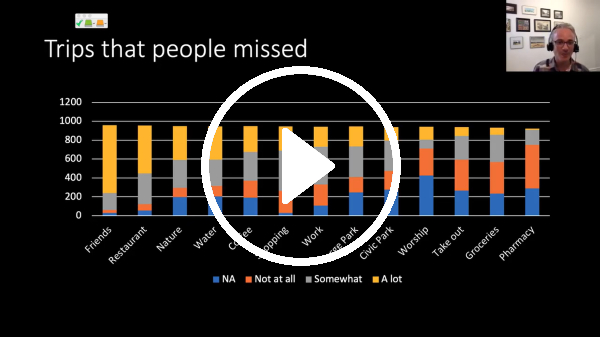

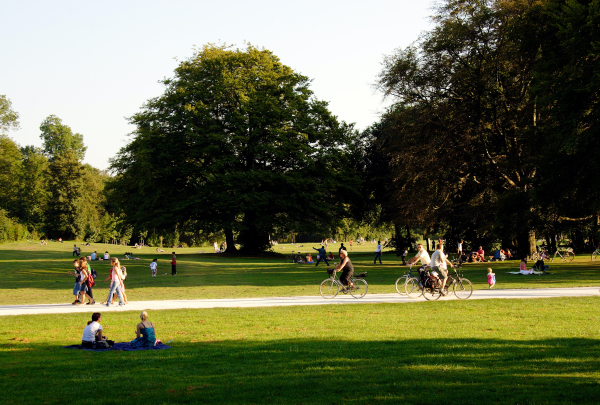
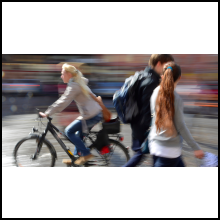


Comments
Commenter
* champs obligatoire